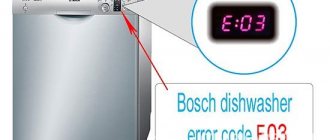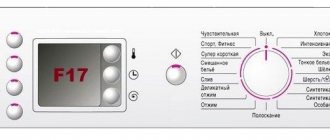The household appliances market is actively replenished with appliances for home and everyday life. We are used to a kettle, a vacuum cleaner or a washing machine, but we are looking closely at some new technical innovations. The kitchen is being “attacked” by microwaves, multicookers, pressure cookers, blenders, yogurt makers and other appliances. Their abundance and variety of utensils used require care. A logical question arises: is a dishwasher necessary?
We suggest considering the pros and cons of dishwashers in order to make a decision: is it worth buying a PMM or not.
Why do you need a dishwasher?
Important! According to statistics, PMMs are increasingly entering the home to simplify housekeeping and optimize everyday life. But millions of families still manage without it. Why are dishwashers not common? Probably, the Russian consumer associates automatic dishwashing with huge volumes of dishes, typical of restaurants, hotels, catering, etc.
Is a dishwasher profitable? It significantly saves time, effort and resources, but we do not insist on immediate purchase. You need to weigh the pros and cons to make a decision.
Do you think that for a family of 2 people there is no need to purchase a dishwasher?
Let's simulate the situation: dinner for 2 people, the plates contain the usual food - mashed potatoes, a cutlet, a salad of fresh vegetables, a cup of strong tea. It would seem that there are not many dishes, and you can spend 15 minutes washing them. Why then do you need a PMM if you have to wait several hours for the plates to shine again? Let's make some adjustments: all of the food mentioned was cooked in some way - in a saucepan and in a frying pan. Add them. And it's just dinner for two. What to do when guests show up?
Fact! A dishwasher is not necessary for those who really enjoy washing dishes with their own hands. Hand on heart, can you admit this to yourself?
But not every dishwasher can accommodate large dishes: a pot or a frying pan. Some of the used utensils will have to be washed with your own hands. This is not a matter of technique at all, but of a wrong choice. Let's look at what to look for when purchasing.
Flaws
Previously, the main disadvantage of any dishwasher was the high price - it was difficult to decide to snatch a considerable amount from the family budget for equipment that you could do without. Today there are also expensive PM models, but along with them there are also mid-price products, as well as frankly budget ones. Their functionality is, of course, poorer, but they fulfill their main task.
However, this technique has even more serious disadvantages:
- Energy consumption. Even the most economical dishwashing machine spends about 800-900 Wh. You can slightly reduce costs with models equipped with a timer, if you have a “day-night” double tariff electricity meter.
- Risk of flooding neighbors below if equipment breaks down. However, most modern cars have an Aqua-Stop function that solves this problem.
- Having to pile up dirty utensils until the dishwasher is fully loaded. Models that can operate in “half” mode do not have this drawback. On the other hand, why do you need a dishwasher if you have so few dirty dishes?
- The cost of purchasing special detergents and salts to protect equipment from hard water. These preparations are much more expensive than gels for manual washing.
Some types of dishes cannot be sent to the PM at all - they may lose their original appearance from prolonged exposure to hot water and high-temperature drying in the machine. Aluminum and silver cutlery, copper and cast iron pans without a protective coating, painted porcelain sets and wooden utensils - all this will have to be washed by hand the old fashioned way. Dishwashing equipment will simply ruin them. You should also be careful with plastic containers: you can send them to the PM chamber only if the manufacturer specifically indicated this in the instructions.
There is no point in buying a dishwashing machine if you have a small family (4-5 people) and it takes little time to do this work yourself. For parents with many children, as well as lovers of frequent friendly get-togethers, the need for such equipment will also have to be weighed against the kitchen area. If a large model no longer fits, it is better to avoid purchasing a PM altogether. A small dishwasher will not be able to meet all your needs and provide clean utensils on time.
Now, having weighed all the pros and cons, you can gather a family council and decide whether you need to buy new equipment for your home. But leave the last word to the person who washes the dishes more often than others.
Features overview: pros and cons
A dishwasher is designed to make kitchen chores easier, but purchasing one is a conscious choice. To be honest, the question of the presence or absence of such equipment in the house often concerns solely the price. Before shelling out a tidy sum, it is worth assessing the advantages and disadvantages of PMM.
- Capacity and dimensions. The characteristics are closely interrelated: the more spacious the machine, the larger it is. The larger the body, the more dishes can be washed in one cycle. Capacity is measured in sets of dishes. So, compact models wash 4-6 sets, and large ones - 17 or more. In RV, medium-sized machines that can hold from 9 to 14 sets are popular among buyers. It all depends on how big your family is. If there are three of you living together, buying a small model may be a mistake - as we wrote above, compact PMMs do not wash baking sheets, pots and other bulky items.
- The dimensions of the dishwasher are standard or close to them. The width of the narrow model is 45 cm, the full-size one is 60 cm. Do you think that in a kitchen of 6 sq. m. is a dishwasher a luxury and an extra bulky thing? If you choose the right size of the appliance and install it under the countertop, sink or in the furniture, the area of the room will not be affected.
- Wash time. Standard cycles last from 2 to 3 hours. This scares off potential buyers - time is not short. But what difference does it make when the plates move from the sink to the shelf - after 20 minutes or after 120? Moreover, you can use the night mode and in the morning, instead of washing a mountain of plates, put them in their places.
- Quality of washing. Manufacturers call this characteristic “wash class”. Modern machines are produced with the highest class - A. Models of class A will wash the dishes better than you - you will simply get scalded by water with a temperature of 60-70 degrees, or even higher. An advantage of washing in hot water is complete disinfection of dishes from pathogenic microbes. The quality of washing is also affected by the choice of detergent for the PMM and the correct placement of dishes in the hopper.
Attention! Some models have the necessary "Soak" and "Pre-Rinse" functions, thanks to which you can accumulate dishes inside the hopper throughout the day.
- Drying. Any model has drying - the only difference is in the principle of operation. There is condensation and forced - turbo drying. With it, the dishes do not require care - no need to wipe, which is especially convenient when washing glassware, crystal, etc.
- Additional options. Many models can sterilize jars, disinfect children's toys, etc.
Which is more economical: dishwasher or hand washing?
Many inexperienced housewives believe that appliances consume a large amount of electricity and water. However, the situation is radically different from the opinion of ordinary people. Experts have long proven that it is difficult to estimate the actual flow rate under running water. At the same time, the machine is able to save water resources in liters thanks to the efficient operation of nozzles and sprinklers. In addition, the equipment uses only cold water, heating it independently.
It is known that a standard dishwasher uses an average of 12 liters of water per wash cycle. If you purchase a premium model, the consumption is reduced to 7 liters of water. Through experiments, it was found that washing dishes by hand consumes up to 50-60 liters per day.
Full-size dishwashers are known to not use more water than smaller models. Washing is economical due to the presence of a half-load mode.
Dishwasher efficiency
There is an opinion that PMM saves water consumption. This is a rational thought, especially if the machine consumes cold water. Washing under running water does not allow you to visually assess how much water is consumed. The machine saves water in liters thanks to the operation of sprayers (sprinklers, nozzles). Savings are also due to heating the water - hot water does a better job of washing, and it is required several times less than cold or warm water.
Important! Typically, machines use 12-13 liters of water per wash cycle, and premium models save water up to 7-8 liters. Hand washing takes about 60 liters of water daily.
The size of the dishwasher is not related to saving resources - this is another myth. Consumption is determined by the design features of the PMM, and not by its dimensions. Full-size and narrow dishwashers often have a half-load mode, which will be more economical to wash than when fully loading a compact model.
Unfortunately, saving water does not cover the cost of paying electricity bills. Most models consume about 0.8 kW/h, which translates into 70 kW monthly (with minimal use of equipment).
To pay for energy resources, add expenses for detergents, rinse aid, regenerating salt and descaling products.
Important! It’s up to you to decide which products are better to buy—cheap or expensive, imported or domestic—but you won’t be able to save money even if you replace the special salt with regular salt and the cleaning products with citric acid or vinegar.
Maintaining a machine is always more expensive than washing it by hand, but for the sake of free time and well-groomed hands, you need to sacrifice something.
Who wouldn't mind buying a dishwasher?
After analyzing real reviews from the owners of this kitchen appliance, it is easy to identify the main situations and people who would benefit from having a dishwasher:
- small child in the family. It needs to be constantly given a lot of attention and should not be wasted on washing greasy dishes.
- newlyweds. It is necessary to exclude any situations that could spoil the relationship. And this could even be something as small as a dirty cup on the table.
- reluctance to deal with dirty dishes and aversion to their presence. It's easier to load dirty dishes into the machine than to suffer from the mess caused by their presence.
- large family (4-5 people or more). A dishwasher will help a woman not to spend a long time at the sink. Therefore, to the question of whether a dishwasher is needed for a family, the answer is most often given in the affirmative.
- constant scandals in the family over dirty plates, pots and other kitchen utensils.
- presence of allergies to detergents.
- lack of hot water or its regular shutdown.
- frequent parties with friends and home celebrations.
The desire not to stand over the sink with dirty dishes for several hours is quite justified. Especially when there is a lot of other homework, for which even a day is not enough. Buying a dishwasher can help in this case.
User reviews
To understand whether you need a “helper” in the kitchen or not, read reviews from experienced PMM users.
Albina, Kursk
A dishwasher is an invaluable time-saving purchase. I learned how to load dishes into the hopper correctly, and the procedure began to take a maximum of 3 minutes. Cost-effectiveness is questionable; it is unlikely that you will be able to save money with a machine, but your hands and manicure will always be perfect. This quality of hand washing cannot be ensured. Are you afraid of 2 hours to wash? I don’t see a problem: the main thing is a brilliant result.
Alexandra, Sochi
I haven’t yet seen people who regretted having a dishwasher at home. After the purchase, I felt like a woman, not a slave. I have a large family, and it was hell to wash the dishes for my husband and three children. Yes, some things are not included in the bunker. And wooden objects cannot be washed, Teflon pans too. There are no problems with everything else. Advice: don’t save money and don’t buy a narrow machine - the price difference is small, and the capacity is not very good.
Tatyana, Omsk
What? Skip the dishwasher? This is the best and most useful appliance in my house. I highlighted the following advantages for myself:
- Dishes are washed better than by hand.
- The short program duration is 40 minutes.
- I save water and my time.
- The skin on my hands began to look better in a couple of months - there is no contact with any “dishware chemicals”.
- Pots and pans are washed - previously they had to be cleaned and scrubbed, but now there are no worries.
For those who are skeptical, I’ll be honest: there are some disadvantages, but they are not significant.
To summarize: whether to buy or not
Drawing conclusions, let us outline the main advantages of modern PMM:
- Save time.
- High-quality and gentle washing.
- Disinfection.
- No negative impact of aggressive “chemistry” on the skin of the hands.
- There is no need to wipe dishes.
Minuses:
- Price. A good model from a reputable manufacturer is highly valued. With the purchase of high-quality German or American PMM, you will receive reliable equipment for many years.
- Problems with placement. In small apartments there can be difficulties with the location of the machine. You can choose a compact model or integrate the PMM into the kitchen set - there is a way out.
We hope you agree that a dishwasher is an important and necessary appliance. When you decide to buy, be sure to read the article on how to choose a dishwasher.
The question is blunt: do we need a dishwasher?
In order to answer this question, analyze the situation and your motives, try to find arguments for and against, write them down and compare them - and draw conclusions. First of all, think about where you found out about this machine - did you see it in the kitchen of a close friend? If so, and you are also interested in the idea of having such an assistant, then again think about whether it’s worth following your desires. Is it really needed, will you use it, or is it purchased to boost your ego.
Of course, if you have a large family, then the dishwasher will really be a helper for you. But, if you live on your own, what is a dishwasher for? It's probably not worth turning on the car just for one coffee mug. Although, if you have extra money and you don’t know how to spend it, then you can buy a dishwasher with a clear conscience.
The decision has been made – I’m buying! You have finally made up your mind and are going to the store. Stop, go back to the kitchen and think about everything again. Read below for some things to think about.











